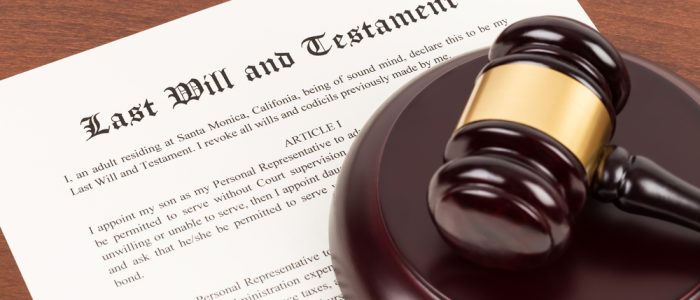Creating a will not at the top of your to-do-list? Maybe it should be! Creating an estate plan is one way to ensure your family is taken care of, and your wishes are carried out in the future.
Having a will isn’t just for the uber-rich or elderly. In fact, everyone should have a will regardless of your marital status, age, or the size of one’s estate.
When writing out your will, many considerations need to be taken into account. Here are ten questions you can answer to help you have peace of mind about your family’s future.
Family Considerations
Question #1 Who will raise your children if they’re under the age of 18?
When choosing a guardian for your children, consider who your kids will be comfortable with, who shares your values, and who has the capacity to raise additional children.
Question #2 Who will serve as their “temporary guardian”?
It’s vital to list temporary guardians in the event the children need immediate care. This person doesn’t necessarily need to satisfy all of the considerations you want from a long-term guardian but should be someone who will put the children’s interest first.
Question #3 How will the needs be met for children with special needs?
From additional support to financial assistance, children with special needs sometimes require care after the age of 18. Be sure to consider their needs and who has the capacity to care for your child.
Financial Considerations
Question #4 How do you want your assets distributed?
Consider all of your assets, cash, property, sentimental memorabilia, etc. Your will is where you can outline who will be awarded what upon your passing.
Question #5 When do you want minor children to receive their inheritance?
Many parents choose not to make everything available once minor children turn 18. If you have specific wishes about how and when they should receive money, you can outline these specifications in your will.
Question #6 Who will be in charge of your financial assets after you pass away?
When you appoint a legal guardian for your children, they don’t automatically become in charge of your finances. You can designate a specific person to handle your trust and other assets.
Question #7 How much money should you leave to care for your family?
A life insurance policy can help pay for your after-death arrangements as well as meet the needs of your family financially. Generally, it’s advised to purchase a policy to cover at least ten times your annual salary.
Legal Considerations
Question #8 Who will serve as executor of your will?
The executor of you will is responsible for taking care of financial obligations, distributing assets according to the will, and maintaining your property until the estate is settled. The ideal person is someone who is responsible, detail-oriented, and organized.
Question #9 Who will prepare your will?
This isn’t something you have to do yourself! In fact, because there are so many critical details that you have to get right, it’s advisable to work with an experienced estate planning attorney. Merely filling out a form on the internet doesn’t make a document legal. And if mistakes are made, in the end, everything may wind up having to go through the state.
Question #10 How frequently will your plans be updated?
As your circumstances change, you may want to update your will. Make sure to review your will every 3-5 years to ensure what is outlined remains relevant to your wishes.
For help with your estate planning, contact our office today to schedule a consultation.



